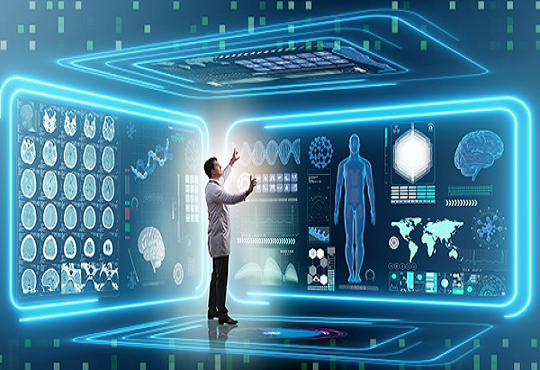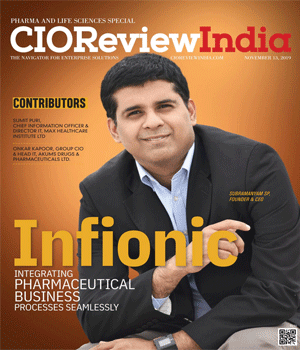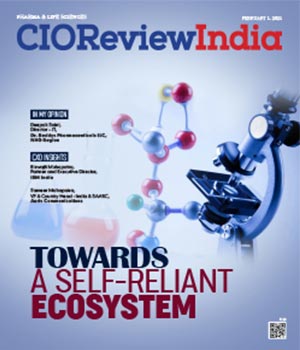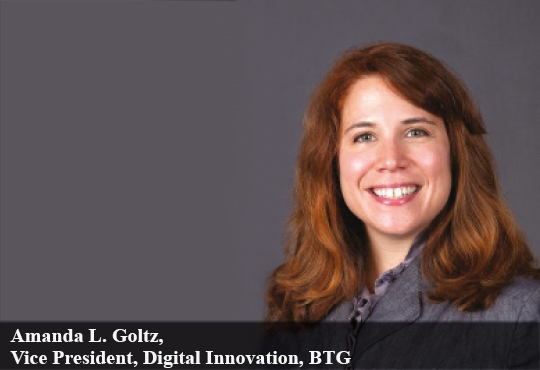
Mobility: No Longer Just an Add-on in Healthcare - A First Choice for Disruptive Change
Vadeesh Budramane, VP & Global Head - Healthcare IT, Sutherland Healthcare Solutions | Tuesday, 07 February 2017, 12:47 IST
 Ubiquity in Mobility
Ubiquity in Mobility
The prevalence of mobile phones and other hand-held devices cannot be overstated. They are the go-to tool for everything from hailing taxis to scheduling meetings. In fact, a recent study found that consumers today rank their hand-held devices as more important than TV or coffee in their daily lives. And when faced with the dilemma of a lost device, most people say they would give up alcohol or chocolate to get it back. But while mobile devices are as common as cars and as critical as toothbrushes, the healthcare industry too often treats mobile access as a nice-to-have- but not necessary- “add on.” Going forward, that attitude will change as industry insiders come to recognize what outside business leaders already know: mobility is going to bring major disruptive change to healthcare
In fact, the retail sector as a whole is tying mobility to data management to allow consumers to access more accurate product catalogue information on their mobile devices. Similarly, collaborative models are being deployed across industries to enhance and refine corporate training and resourcing functions. As a result, human resources departments are realizing cost reductions while supply chain efficiencies increase. Even the education sector has begun to harness mobility to bridge the gap between parents and administrators, addressing key concerns around child safety and communication. Clearly, forward leaning enterprises across industries are looking to mobility for more than internal applications; they are accessing mobility as a first means of holistic
digital transformation.
Mobility in Healthcare
In the healthcare sector, opportunities to leverage the potential of mobility are abundant. But they are frequently under exploited. For example, patient portals have been around for a decade now. But the functionality they offer remains limited in scope and largely one-directional. Similarly, Fitbit and other health tracking devices are flooding the market with a wealth of personalized, actionable data. But too often that data does not get socialized to all stakeholders. By fully tapping into the power of mobility as it already exists, the entire healthcare ecosystem will realize unparalleled benefits.
Think of the possible advantages if care givers were able to securely access the full scope of available health data, track health information in real-time, and check-in with their patients when needed. This would significantly improve outcomes and those outcome improvements would likely be most noticeable among high risk patients. Likewise, a mobile-first approach increases patients’ capacity to securely access their personal medical records, allowing medications, treatment schedules, and personal health metrics to be verified anytime, anywhere. Mobile platforms can connect patients with similar health profiles, and vastly improve communications within hospitals, enabling hospital workers to exchange fast, actionable text messages without the need to login to a computer.
Likewise, making health risk assessment forms available on hand-held devices have the potential to improve the health of people with specific chronic conditions. As a result, healthcare service use would be reduced, and the costs associated with avoidable complications – such as emergency room visits and hospitalizations –will be minimized. And by integrating mobile phones with a hospital’s existing communications system, nurses and other hospital workers would have the power to use voice, text messaging, alarms and alerts to communicate the right patient data, at the right time, to the right team member—and in the right format. This level of communication would improve team-based collaboration regardless of the physical location of any one team member.
Closing Thoughts
Imagine a healthcare ecosystem where mobile isn’t an add-on. Imagine instead a world where mobile first is the default approach to building patient portals, increasing communication, and fostering care-centric collaboration that can improve outcomes and contain costs. Everyone would benefit.
Well, you don’t have to imagine that world. It is here. A small but growing number of forward-leaning healthcare organizations are already beginning to take advantage of mobility, treating it as a pre-existing, multi-directional data distribution system with the power to improve outcomes, increase efficiency, lower costs and redefine the contemporary customer experience. And as the number of organizations adopting the strategy increases, so will the competitive costs associated with ignoring mobility’s promise.
So join thought leaders across industries and take the leap toward a “mobile first” business model. Because mobility is no longer just an add on for the healthcare industry, it is a competitive necessity. A “mobile first” approach is the foundation for a more holistic healthcare world.
CIO Viewpoint
Paving the Way for Digital Transformation of...
By Abhrasnata Das
Leveraging IT to ensure Data Integrity in...
By By Deepak Saini,Director – IT,Dr. Reddys Pharmaceuticals LLC, NAG Region
How Is Technology Disrupting The Pharma And...
By Onkar Kapoor, Group CIO & Head IT, Akums Drugs & Pharmaceuticals Ltd.
CXO Insights
The Growing Importance Of Supply Chain...
By Gustavo Salem, Group President, IDEX Health & Science LLC
A Symbiosis Of Technology And Nature
By Amanda L. Goltz, Vice President, Digital Innovation, BTG
Next-Generation Commercial Data Management...



.jpg)
.jpg)
.jpg)





